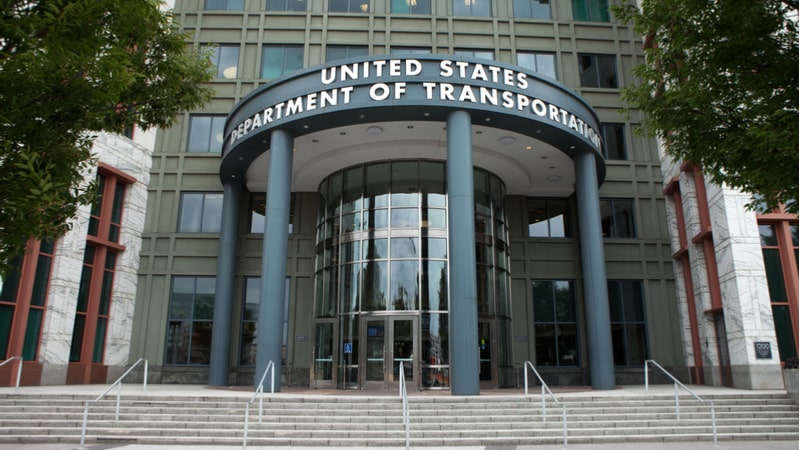
Sean Duffy, President-elect Donald Trump’s choice to lead the Department of Transportation (DoT), told lawmakers on Wednesday that he will prioritize safety and innovation in emerging transportation-related technologies if confirmed to head the agency.
During a Senate Commerce, Science, and Transportation Committee hearing on Jan. 15, Duffy – who served five terms in the House representing Wisconsin – said that aviation safety will be a top priority under his leadership at DoT, and he said the U.S. needs to modernize its aviation systems by employing “cutting edge technologies.”
A Government Accountability Office (GAO) official told lawmakers last December that modernizing decades-old technology at the Federal Aviation Administration (FAA) is “going to be the work of many years, billions of dollars, and thousands of people.” GAO reported that 51 of the FAA’s 138 air traffic control (ATC) systems are unsustainable.
“Transportation is [entering] an extraordinary new era,” said Duffy in his opening statement. “We’re entering it from e-vehicles, drones, autonomous vehicles, to space travel. We’re in a global race to out-innovate and out-compete the rest of the world. If confirmed, we will craft clear regulations which balance safety, innovation, and cutting-edge technology, but always focused on safety.”
Duffy was introduced to the committee by Sens. Tammy Baldwin, D-Wis., and Ron Johnson, R-Wis., who voiced support for his nomination.
“[Duffy] is passionate about safety in our aviation, rail and highway systems,” Sen. Johnson said. “He can’t wait to help harness American innovation to change transportation for the better.”
Duffy frequently referred to his commitment for innovation and safety in aviation technologies. He also said he aims to help rebuild trust in companies such as Boeing Co. following an incident in early 2024 during which a Boeing 737 Max 9 passenger jet lost a door plug in mid-flight.
The DoT nominee said that he would support committee efforts to prop up an advanced aviation technologies center in Dallas, a provision of last year’s FAA Reauthorization Act, which according to committee Chairman Ted Cruz, R-Texas, would help to “accelerate integration of advanced air mobility and other emerging aviation technologies such as air taxis into the national airspace system.”
Duffy also told Sen. Marsha Blackburn, R-Tenn., that he wants to ensure that the U.S. remains competitive in autonomous vehicle innovation, and to counter international competitors including those firms based in China.
“I think we need clear rules that are going to allow our innovators to stay in America and develop products that are going to advance autonomous vehicles that they envision,” said Duffy. “Without clear rules or a patchwork of rules, state-by-state, I think we put ourselves behind those countries that allow for innovators to expand and grow.”
Guidelines and rules that Duffy said he envisions to maintain innovation while implementing safety guardrails include using “data-driven” methods that will determine how “innovators can expand and grow and create product” uniformly across the U.S.
“I don’t want to see those Americans with these fantastic ideas on how they can revolutionize, whether it’s drones or vehicles or autonomous vehicles, that they pack up and they go somewhere else,” the nominee said. “If I’m confirmed, I’ll lead in making sure that we have rules that allow for that investment and that creativity.”
